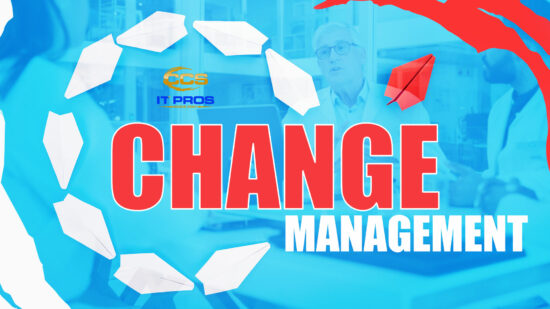Uncover the hidden complexities of tech sales in rural healthcare. [...]
AI Technologies In The Legal Sector
As technology advances, artificial intelligence and chat GPT are becoming more prevalent in various industries, including legal ones. There is a growing concern that these AI-driven tools could disrupt traditional legal practices, potentially causing harm to both attorneys and their clients. However, examining how these innovations can impact the legal world and understanding their limitations is essential compared to an experienced attorney’s expertise.
While AI-generated legal documents and agreements may appear sufficient at first glance, there are critical aspects that these tools cannot handle effectively. They lack the knowledge, experience, and intuition of professional attorneys, thus leaving gaps and potential hazards in these legal documents. This article explores the benefits and risks of utilizing AI in legal services and why relying solely on technology may not be the best option for individuals and businesses.
Key Takeaways
- AI-generated legal documents may lack crucial details, underscoring the importance of attorney expertise.
- Professionals like attorneys and CPAs can unearth subtle nuances that AI tools might overlook.
- It is essential to balance the use of technology and professional legal counsel for optimal results.
Hear From Our
Happy Clients
Read Our Reviews

Overview of AI in Law and Chatbots
Implications for the Legal Industry
The legal industry is facing a wave of change with the introduction of legal artificial intelligence (AI) and chatbots like ChatGPT. These developments have presented concerns for legal practitioners and clients regarding the legal profession’s future.
While AI and chatbots can generate seemingly impressive legal documents, such as master service agreements, trusts, or wills – they come with inherent limitations. For instance, without domain-expert knowledge, users may not ask the right questions or input the correct information to ensure their documents fully cover and comprehensively protect their interests.
The actual value of experienced attorneys becomes apparent in their ability to provide tailored advice, identify pitfalls in complex legal situations, and adapt to evolving laws. Further, an attorney will guide clients toward sound decisions by sharing insights from past experiences, which AI chatbots currently cannot replicate.
A vital business consideration is allocating an appropriate budget for professional services, including legal and information technology expertise. As the landscape of law and technology changes, investing in skilled professionals remains crucial for businesses to minimize risks and protect their interests in the long run.

Insights from Attorney Greg Barwell
The Importance of Professional Judgment
As attorneys, we understand the value of our professional judgment when creating legal documents and providing counsel to our clients. While AI technologies, such as GPT, can generate legal documents and contracts, it is essential to recognize that the quality of these outputs relies solely on the input provided.
Utilizing AI technologies to create legal documents can pose potential pitfalls if the user is not well-versed in the information that must be requested from the AI. This poses risks when drafting complex legal documents like trust agreements or master service contracts. Although an AI-generated document may appear complete and accurate, there is always a chance of missing essential details and clauses tailored explicitly to the client’s needs.
Limitations of AI in Legal Documents
While constantly improving, AI systems still face limitations when generating legal documents. These limitations include:
- Lack of customization: AI-generated legal documents cannot cater to a client’s unique situation, leading to potential legal issues.
- Inadequate knowledge of law: AI systems may not be fully informed on recent legal changes and precedents, which can result in outdated or incorrect advice.
- Missing crucial details: The AI may not know to include certain critical elements within a legal document, resulting in contracts that do not provide the desired level of protection or accurately address the client’s needs.
In various situations, we have witnessed firsthand the potential risks of relying solely on AI-generated documents rather than professional legal advice. From risking a significant loss of assets in a poorly constructed trust agreement to being on the receiving end of a lawsuit due to an inadequate contract, these risks can be mitigated by seeking the counsel of an experienced attorney who can tailor legal documents and advice to each client’s unique situation.
Case Study: TurboTax versus a Certified Public Accountant
In our experience, many people often compare the impact of artificial intelligence in assisting with complex tasks to an average individual using TurboTax over a professional Certified Public Accountant (CPA) to handle their taxes. This analogy provides a great way to examine the advantages and disadvantages of relying on AI for legal assistance.
- We have seen that AI-driven assistance like ChatGPT may provide seemingly accurate and well-structured legal documents, such as master service agreements.
- However, the accuracy and comprehensiveness of these AI-generated documents depend wholly on the input provided by the user, leaving room for error and omissions.
- We have also noticed that while AI-generated agreements may appear complete and accurate, they often lack the necessary clauses and provisions that a professional would include to protect the client from potential legal pitfalls.
- Additionally, AI cannot anticipate changes in the law or emerging industry trends that may require modifications to existing documents, something that professionals like lawyers or CPAs are constantly updating their knowledge on.
For example, consider a scenario where you must create a trust agreement for your family. While an AI like ChatGPT may generate a decent-looking document, unless you have the legal expertise to know what specific questions to ask or what clauses should be inserted, the generated document will likely be missing important details or provisions. Moreover, AI cannot provide tailored advice regarding unexpected life events or the impact of changes in the law on your existing trust or other legal documents.
Practical Example of Trust Agreement
Risks of Insufficient AI-Created Documents
As experienced attorneys, we understand the importance of precise and well-drafted legal documents, including trust agreements. While AI technology, such as ChatGPT, can generate impressive documents, significant risks are involved in relying solely on AI-generated documents without professional consultation.
AI technology like ChatGPT has limited efficacy in generating trust agreements and other complex legal documents. This is because the output from the AI is only as good as the input provided. Anyone using AI tools must know exactly what questions to ask, what clauses to incorporate, and the legal implications. The lack of human expertise behind AI tools can result in serious omissions, which could have significant consequences.
For example, consider a scenario where a trust agreement aims to protect a person’s assets and ensure their family’s well-being. If an AI-generated trust agreement misses crucial provisions or does not provide full coverage, it could leave loved ones unprotected or even put assets in the hands of unintended beneficiaries.
Moreover, AI-generated documents cannot alert you to recent changes in the law or industry that could affect your contracts. Constant legal and regulatory updates require regular reviews and modifications of legal documents, a task that only attorneys can perform effectively.
To avoid the risks of inadequate AI-generated documents, allocating a portion of your budget to professional services such as legal counsel is essential. This allows you to benefit from the expertise of professionals who understand the intricacies of the law and can adapt to changes as they occur.
Business Contract Pitfalls
Insurance and Agreement Compliance
As legal professionals, we often encounter issues with insurance and agreement compliance in business contracts. Inadequately drafted contracts leave businesses and individuals vulnerable, exposing them to unnecessary risks. It’s important to ensure that all potential problems are addressed in the contracts, avoiding detrimental consequences in case of unforeseen events or changes in the law.
As we have experienced, AI-generated contracts may appear convenient, but they lack the crucial knowledge and expertise we bring. Chatbot-generated documents don’t account for specific situations, industry changes, or customized protection businesses require. Investing in professional legal services is essential to ensure your contracts meet insurance requirements and precisely protect your interests.
The Significance of Legal Expertise in Contract Terms
Legal expertise is invaluable in drafting and understanding business contract terms, which include general and industry-specific clauses. As experts in the field, we are well-equipped to identify potential legal landmines and protect our clients from them.
For contract drafting, there’s a risk in relying on artificial intelligence, like chat GPT. It lacks the necessary human experience and understanding to provide tailored solutions. As a result, using an AI-generated contract may leave you ill-prepared in the face of legal challenges and unforeseen consequences.
Here are a few reasons why legal expertise is indispensable in crafting and interpreting contract terms:
- Customization: Legal professionals can customize contracts based on a client’s needs, ensuring essential protection.
- Up-to-date knowledge: We stay informed about laws and industry standards changes, ensuring the contracts adapt accordingly.
- Professional advice: Legal experts provide crucial advice through an ongoing relationship, further addressing potential risks and opportunities.
- Risk management: An experienced lawyer can anticipate and protect against possible pitfalls within the contract framework.
Estate Planning Situations
Risks of a Poorly Constructed Trust
When considering estate planning, particularly trust agreements, it’s essential to understand the potential consequences of a poorly drafted trust. To communicate this vital information, we’ll explore a scenario illustrating the risks a poorly constructed trust can cause.
Imagine a client with a new wife with two children from a previous marriage under 18. The client is very successful, and our firm drafted a trust agreement to ensure the client’s child with his new wife and the other two children would be cared for.
However, the client didn’t sign or transfer their business interest to the trust agreement. In this situation, if the client and his wife were involved in an accident resulting in both their deaths, with the wife passing away one day after the client, their assets would be exposed. Due to the lack of proper estate planning, the client’s ex-spouse (the children’s father) would gain control of two-thirds of the client’s assets. This was certainly not the client’s intention, but it highlights the risks of failing to complete the necessary steps in estate planning.
It is worth noting that relying on artificial intelligence to generate trust agreements and other legal documents carries significant risks. While AI-generated documents may look and sound professional, they often lack the nuance and expertise that an experienced attorney provides. Incomplete or inaccurate trust agreements can inadvertently expose your assets or result in unintended consequences.
Our role as attorneys is to provide valuable counsel and guidance, offering the most accurate and comprehensive legal documents to meet each client’s unique needs. We stay updated on changes in the law and emerging trends, ensuring our clients are informed and protected. Investing in professional services is essential to safeguarding your interests and securing your legacy correctly.
Budgeting for Professional Services in Businesses
Considering IT Services and Expenses
As legal professionals, we know that businesses should allocate a portion of their budgets to professional services. This is necessary to ensure that you’re getting proper counseling and protection for your company. When planning your budget, it’s crucial to consider information technology (IT) expenses and legal and other professional services.
By incorporating IT expenses into your budget, you can keep your company updated with the latest technology advancements, stay protected from potential threats, and maintain efficient operations. Ideally, legal and IT costs should account for around 5 to 10% of your overall business budget.
It’s important to understand that relying solely on artificial intelligence (AI) and tools such as Chatbot GPT may not adequately handle all aspects of your professional services needs. While AI can help generate basic agreements, it may not be able to consider the unique circumstances and intricacies of every situation. This could result in an incomplete or inaccurate contract, leading to problems.
Latest Blog Posts

Discover key strategies for successful IT implementation in rural [...]

Explore how digital transformation is revolutionizing rural hospitals [...]



